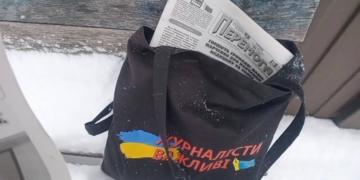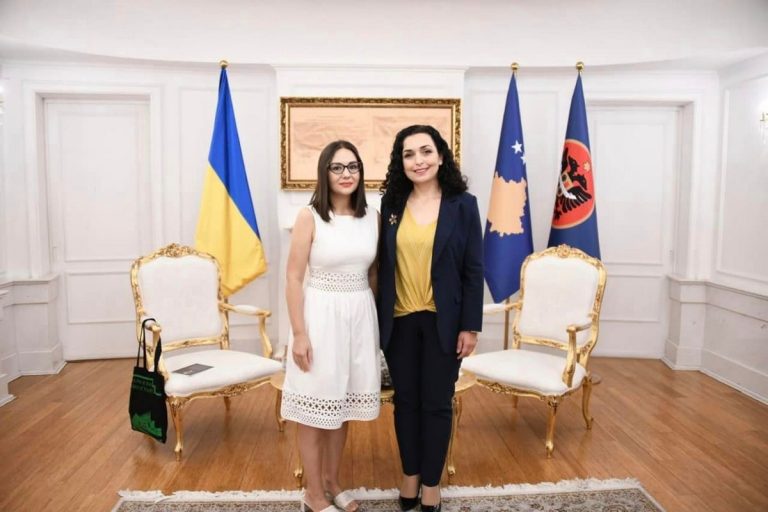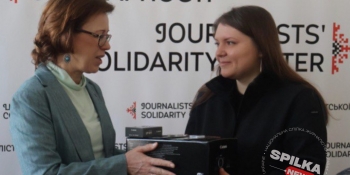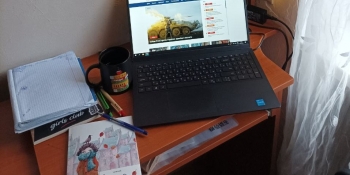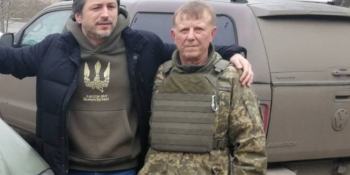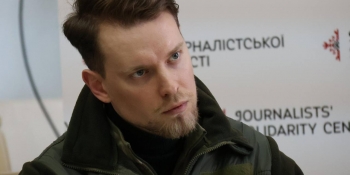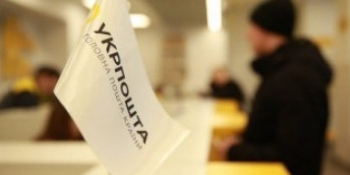Journalist of the European Pravda online media outlet and Tribune Dariya Meshcheriakova sometimes wonders how many trials can befall one person. Life has tested her since she left her native Luhansk in 2006 to study. When hostilities began in eastern Ukraine in 2014, she saw war with her own eyes. She heard about the occupation from relatives and wrote about it. And in 2022, already living in Kyiv, she became an eyewitness to now full-scale Russian invasion.
Leaving her homeland to the wail of air raid alert, Dariya did not know that life would give her the opportunity to become a participant in the professional protection program for Ukrainian journalists called Journalists-in-Residence in Kosovo. This period was fruitful and responsible for her. She says that in her first month in Pristina, she gave interviews to almost all Kosovo media. The main topic was the war in Ukraine.
Dariya told her story for the website of the National Union of Journalists of Ukraine (NUJU). She notes that in 2014, she lived in Berlin and worked in the Berlin newspaper Tagesspiegel. Her parents stayed in Luhansk when the Russian military appeared there.
“I asked my dad to go out into the city and find out what kind of people these foreigners were, and what they wanted. He was my own local correspondent. Later, I decided to return to Ukraine,” she says.
The journalist had an earlier-purchased ticket for the Istanbul-Donetsk flight, but there was nowhere to fly. During the fighting between the Ukrainian military and pro-Russian armed groups, the Donetsk airport was destroyed. Through adventures and challenges, she reached Kyiv, then took the Kyiv-Luhansk train to her parents. Previously, it was impossible to buy tickets for the route, they were sold out instantly, like hot cakes. Now the passengers in the carriage could be counted on the fingers of one hand.
The city of her childhood greeted Dariya with unfriendliness.
“I came to Luhansk, and it was empty there!” she recalls. “There were almost no people on the streets. The parking lot near the Metro supermarket, which usually never had free spaces, was also empty. My parents and I were almost the only customers in the once crowded shopping center. There was a feeling that something was going to happen now.
Feeling bad, Dariya suggested that her parents move to Kyiv. But they answered: “If it’s needed, we will hide in the garage, in the basement.” And within a week, active hostilities began in Luhansk.
“My friend was very scared and asked me to spend the night with her. It was really creepy. The sound of explosions and gunshots could be heard throughout the night,” the journalist recalls.
Having never persuaded her parents to evacuate, she decided to return to Kyiv. Residents of Donetsk and other temporarily occupied territories began to arrive in the capital in those days. People thought they would come for two or three weeks to wait and go back. But many of them were never able to return home.
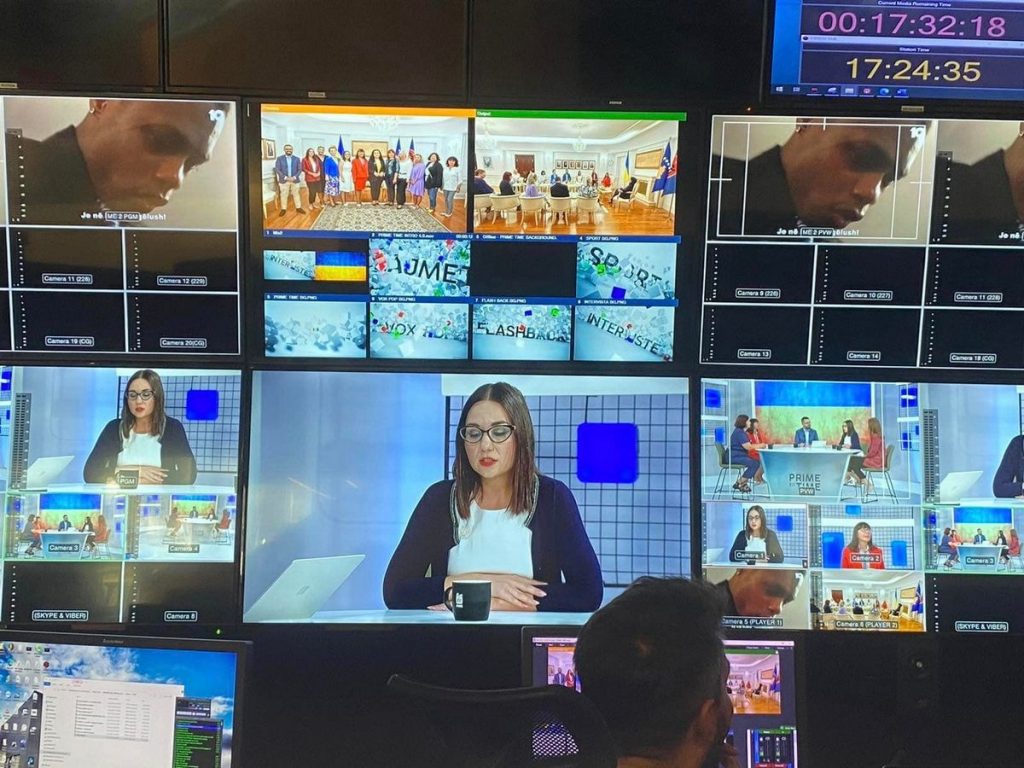
Even before working in Germany, Dariya worked in the famous capital newspaper Segodnya. She resumed working there after returning to Ukraine. However, the news coming from home did not allow her to focus on work. The news about two classmates who became proponents of the so-called Lk People’s Republic was painful. Then came the news about the death of a schoolteacher and the shooting of civilians at a bus stop. The editor said: “You either work or go home and cry.”
The separatists threatened Dariya and her family for their pro-Ukrainian position. But even under such circumstances, the parents refused to leave Luhansk. And Dariya went to Germany again, this time to Deutsche Welle in the framework of a program for journalists from Eastern Europe. After completing the project, she returned to Kyiv and immersed herself in journalism. As part of a team of Kyiv media workers, she started a new project in sports journalism. But three months later, they were told that the project was closing. The girl was left without a job. So, she decided to go to Luhansk and see what was happening there.
She says that in April 2018, she thought of staying at home for two or three weeks, but after a week she rushed away.
“It’s like your city, but at the same time it’s someone else’s,” she said. “Some kind of dystopia. In the shopping center, the windows are covered with plywood. In some places, there are city lights filled with ads about promotions on goods from 2014 with prices in hryvnias. New billboards appeared in the city. One depicted the Luhansk airport and the inscription in Russian: “We will not forget, we will not forgive.” (The Luhansk International Airport was destroyed by Russian artillery after the start of hostilities in the east – Ed.). The second billboard features a Russian flag, two bears on a lawn, and the words “We’re coming home.” Then I wondered: “Where did the bears come from in our steppes? And why are they coming back? What a wild imagination was that…?!”
Armed people on the streets, including those in the uniform of the Russian military, were engraved in the memory. The University of Internal Affairs named after Didorenko, located opposite her parents’ house, became a base for Russian soldiers.
“They brought equipment, weapons, and people there. It was impossible to watch. A curfew was introduced, and Russian currency – rubles – were introduced into circulation. I didn’t recognize my hometown. I went to the stadium, where Zoria was playing some LPR’s championship. I felt so disgusted that I decided to return to Kyiv,” Dariya Meshcheriakovarecalls.
At the checkpoint, armed men looked suspiciously at her and asked: “Where do you live, where do you work?” Hearing that the girl was a journalist by profession, one of the soldiers took her passport and went somewhere.
“I thought I was getting scared, but I had two more foreign passports with me, so I would have left the document for him without regret. The military man came back and started asking again where I work. I said that in a well-known Russian-language newspaper. He began to express his remarks mockingly, saying that this cannot happen in Ukraine. I answer: “If you had ever traveled outside your village, you would have found out that this publication is owned by a certain oligarch from the Donetsk Region.” My dad turned black with fear as he listened to this conversation. In the end, the soldier threw my passport away and told me to get out,” says Dariya.
She notes with sadness that during the full-scale invasion in February 2022, Stanytsia-Luhanska was surrendered to the Russians without a fight. According to her, the father of a school friend headed the village council and did a lot to preserve pro-Ukrainian sentiments in this area. But in his place came “typical bandits and surrendered Stanytsia-Luhanska to the occupiers on the very first day of the war.”
Darya remembers February 2022 down to the smallest detail. At that moment, she worked at the German embassy in Ukraine.
“First, the families of the diplomats were taken away. Employees were constantly on coordination meetings. I came to work on Wednesday. I panicked a lot because active hostilities had already begun in Luhansk. I was terribly worried about my parents, because they could not go through the checkpoint. The chief saw my worries and assured me: “If you think that tanks will drive around Kyiv, you are wrong.” In a couple of hours, the German colleagues left.
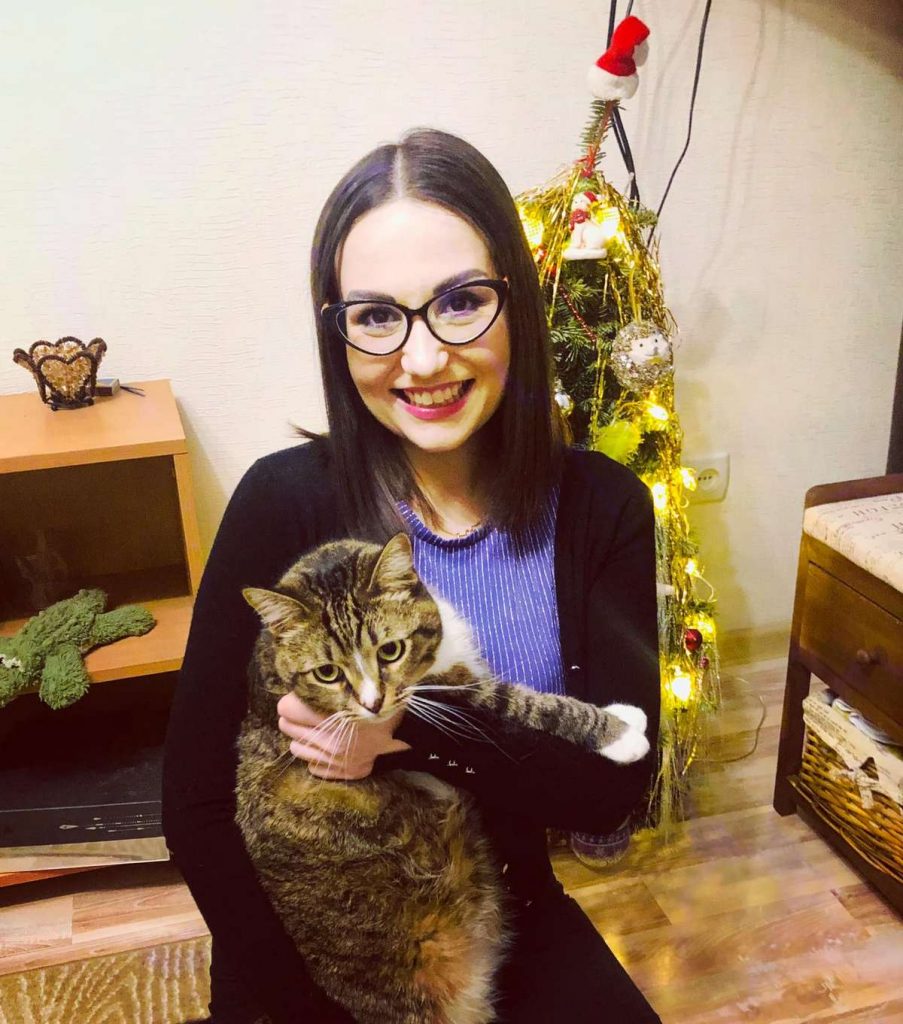
In the morning of February 24, the Russians began shelling Kyiv. A neighbor came and said: “Let’s stick together.” The next day she left the city without even saying goodbye. Dariya built a bed in the bathroom for herself and her cat, Tommy. She says she was afraid to leave the apartment during the day, and panic attacks began at night.
“I persuaded my parents to leave Luhansk to visit relatives who live in Russia on the border with Ukraine. They listened to Putin’s speeches on TV there and returned in a week. It was very scary when it shells or missiles started to hit near my house. My hands were shaking so much that I couldn’t hold the phone. After a week of fear and sleepless nights, my friend and I agreed to go to Lviv. But he went there himself, and our friendship ended, “says Dariya.
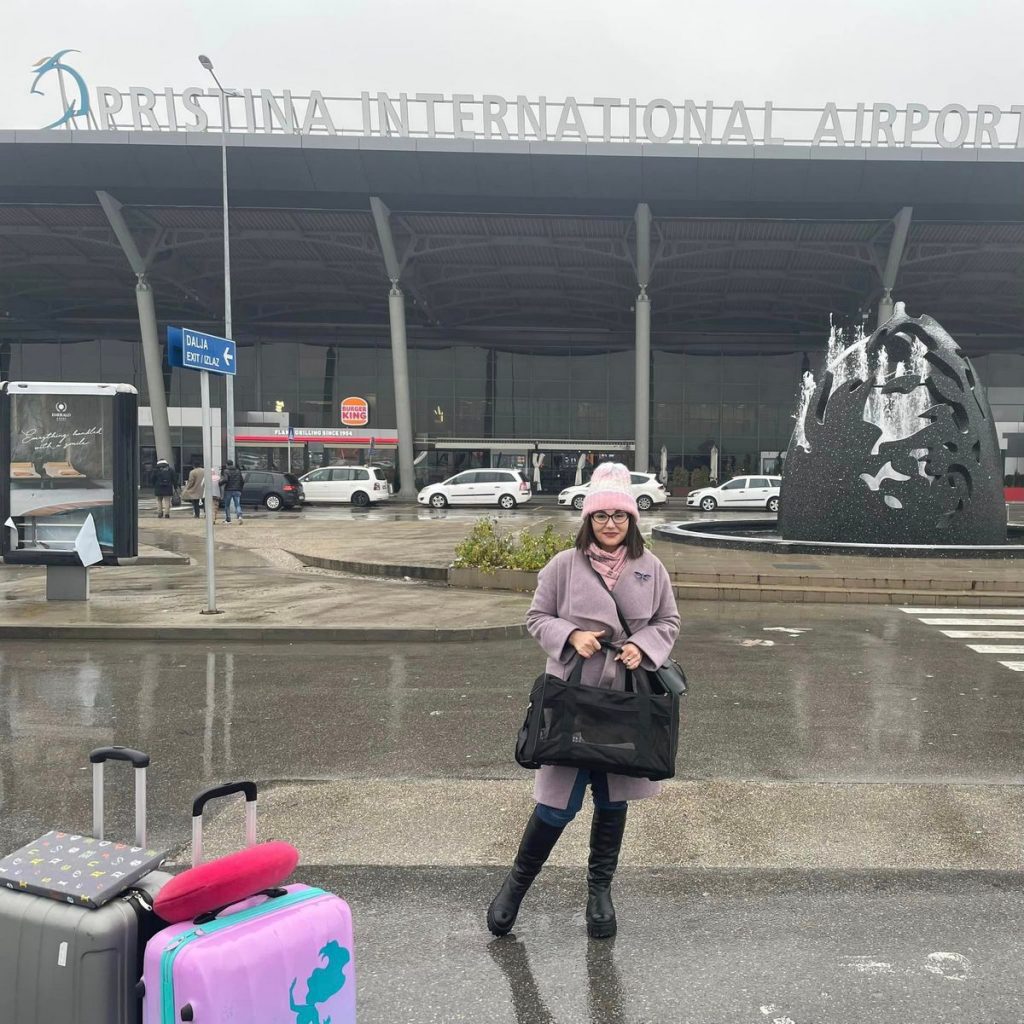
After some time, she managed to leave for the Netherlands. She was in a speechless for about a month and a half. She just was just lying there, watched YouTube and texted on the phone. She couldn’t even read because she failed to focus. When a plane flew in the sky, she thought that a rocket would fall on the house.
One day, a Kosovar friend sent her a link to the Journalists-in-Residence protection program for Ukrainian journalists. Dariya sent an application. Five minutes after she filled out the application form, Flutura Kusari, a media senior legal adviser at the European Center for Press and Media Freedom (ECPMF), answered her and congratulated her on participating in the project.
“That’s how I ended up in Pristina. Incessantly giving interviews to various media, and this was the main goal of the first two months of my stay here. There was a great excitement around Ukrainian journalists. Everyone wanted to talk to us. I remember one such day, I left home in the morning and returned at midnight, giving interviews and speaking at various events. I felt like I was some kind of rock star. In fact, it was attention not to my own person, but to Ukraine. I think that by staying here we can at least express our point of view, what this war is worth to us,” Dariya Meshcheriakova says.
She emphasizes that in Kosovo, attention and support was shown to all Ukrainian journalists without exception. She says: “I am very glad that we were able to be ambassadors here without an embassy.” The media offered her cooperation, so even after leaving Pristina, Dariya Meshcheriakova continues to write materials about Ukraine for local publications.
“As long as I have the opportunity, I will continue to engage in journalism,” sums up Dariya Meshcheriakova in the end. “Anywhere: even in Ukraine, even outside its borders. This is my vocation. I am always happy when I have the opportunity to work full-time in journalism and have a decent standard of living. Unfortunately, journalists in Ukraine earn very little. If it is still possible to find a more or less normally paid job in Kyiv, it is much more difficult to do so in the regions. It is for this reason that I did not work in journalism for some time, and the profession was more like a hobby for me. Now I am glad that I can work as I did before.”
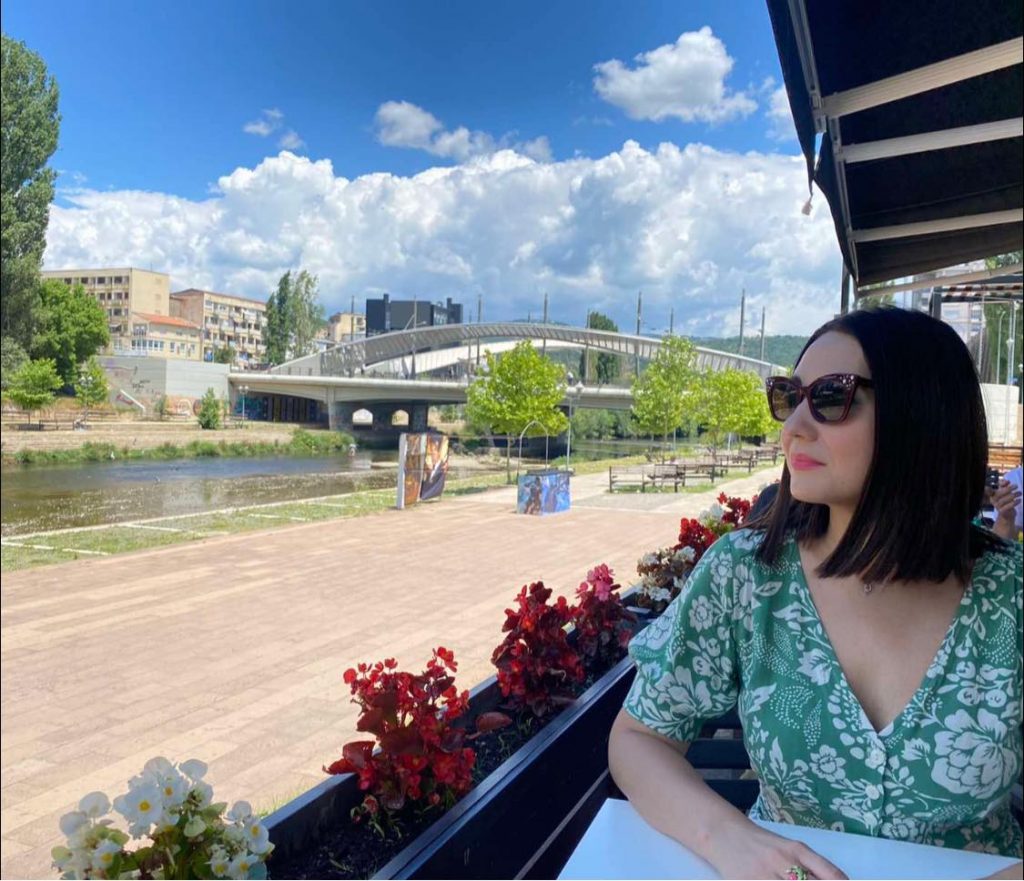
Liudmyla Makei
Photos from Dariya Meshcheriakova’s Facebook





